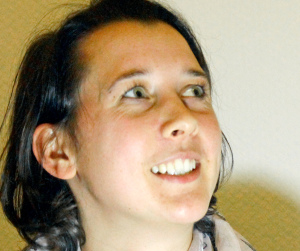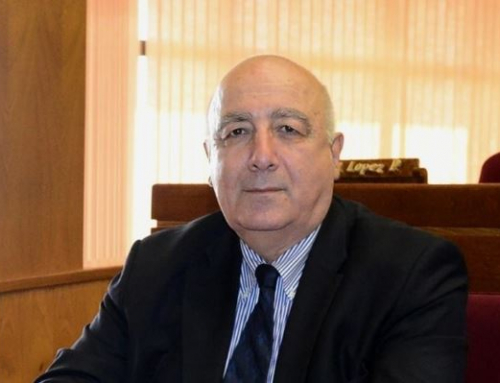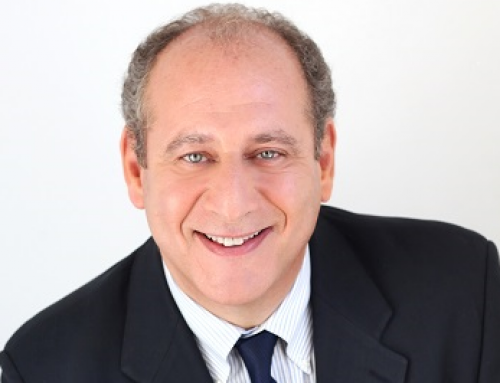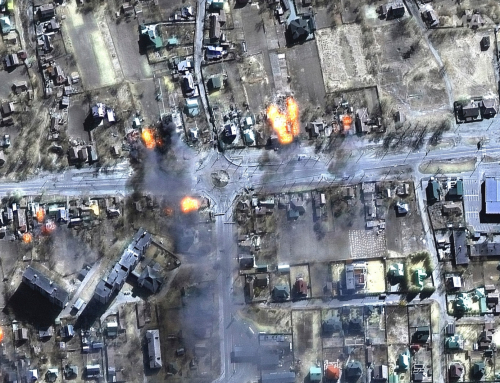
Sarah Delys is a criminologist working for Human Rights Education and Monitoring Centre in Tbilisi.
Last month marked the one-year anniversary of the LGBT rally which turned violent in Tbilisi. The tense situation in the country in the run-up to the International Day Against Homophobia made activists resolve to a silent protest [1] this year.
A few days after the rally in 2013, four men were arrested for petty hooliganism and disobeying police. Another four individuals, including two Orthodox priests, were charged with encroachment on the right to assembly and protest. Charges against one priest were later dropped due to a lack of evidence.
Eventually four persons were found guilty on the charges of hooliganism and each fined with GEL 100, the minimum penalty for minor hooliganism. Not a single cleric has been punished.
In many countries we see a trend of classifying hate crimes as acts of hooliganism in the courts. This is also the case in Georgia. There lies a certain difficulty in defining hate crimes while differentiating them from hooliganism and other acts of intolerance.
Yet, sexual minorities are not the only social groups that have to deal with hate crimes. In Georgia, especially, religious and ethnic minorities are targeted as well. Recently, several people connected to politics were also attacked in the run-up to the recently held local elections.
Thomas Hammarberg, the EU’s special advisor for legal reforms and human rights in Georgia, called on the Georgian government to initiate “a national campaign against violence”. During his visit this month he further warned officials against the trivialization of cases of hate crime.
According to the OSCE, a hate crime is a criminal act committed with a bias motive and consists of two elements. First, a criminal offence under ordinary criminal law and second, the offender intentionally chose a target on the basis of an identity-related characteristic such as language, religion, ethnicity or gender.
Article 239 of the Georgian Criminal Code refers to hooliganism as an “action which grossly violates public order or demonstrates open contempt toward the public, committed under violence or threat of violence,” the penalty for which is either a fine or imprisonment up to one year.
Not only is the sentencing less harsh, the act of hooliganism is defined much more vague than a hate crime. The difficulty in prosecuting hate crimes lies within the fact that the motivation of the crime must be proven.
Only certain crimes involving bias motivation are specified in the Georgian Criminal Code, including the “infliction of serious injuries motivated by racial, religious, national or ethnic intolerance.” [2]
However, because of the lack of a strictly defined legislative framework on hate crimes and tolerance towards such crimes we can speak of an impunity trend in the country.
But very little information is available on the registration and prosecution of hate crimes in Georgia. Not only the Prosecutor’s Office, but also the courts are responsible for data collection.
This is a common problem in many countries. The creation and implementation of a system for data collection that separates hate crimes from other crimes and that disaggregates bias motivations is therefore highly recommended.
However, the Prosecutor’s Office claims it is the sole responsibility of the courts to gather this data since the judge is in charge of sentencing and determining aggravating circumstances based on Article 53(3) of the Georgian Criminal Code. Even though prosecutors are obliged to identify the causes of a certain crime during their investigation, including indications that it was a hate crime.
Moreover, both the courts and the Prosecutor’s Office are reluctant to classify hate crimes as such because of the political implications it might have.
An additional problem is the refusal or failure of law enforcement bodies to identify a criminal act as a hate crime.
The effective prevention of hate crimes will likely remain difficult in the country as long as public leaders continue to make intolerant statements and in doing so maintain the ideology that motivates hate crimes.
Adequate reporting on hate crime is therefore crucial in understanding the existing social and political situation. Hate crime reporting will be an important step for civil society to be able to advocate for changes in both policy and practice.
Sarah Delys
Human Rights Education and Monitoring Centre
Notes:
[1] On May 18, 2014 more than 100 pairs of shoes were laid down on Pushkin Square as a protest against invisibility and on behalf of those rendered invisible.
[2] Article 117 of the Georgian Criminal Code.





Leave A Comment
You must be logged in to post a comment.